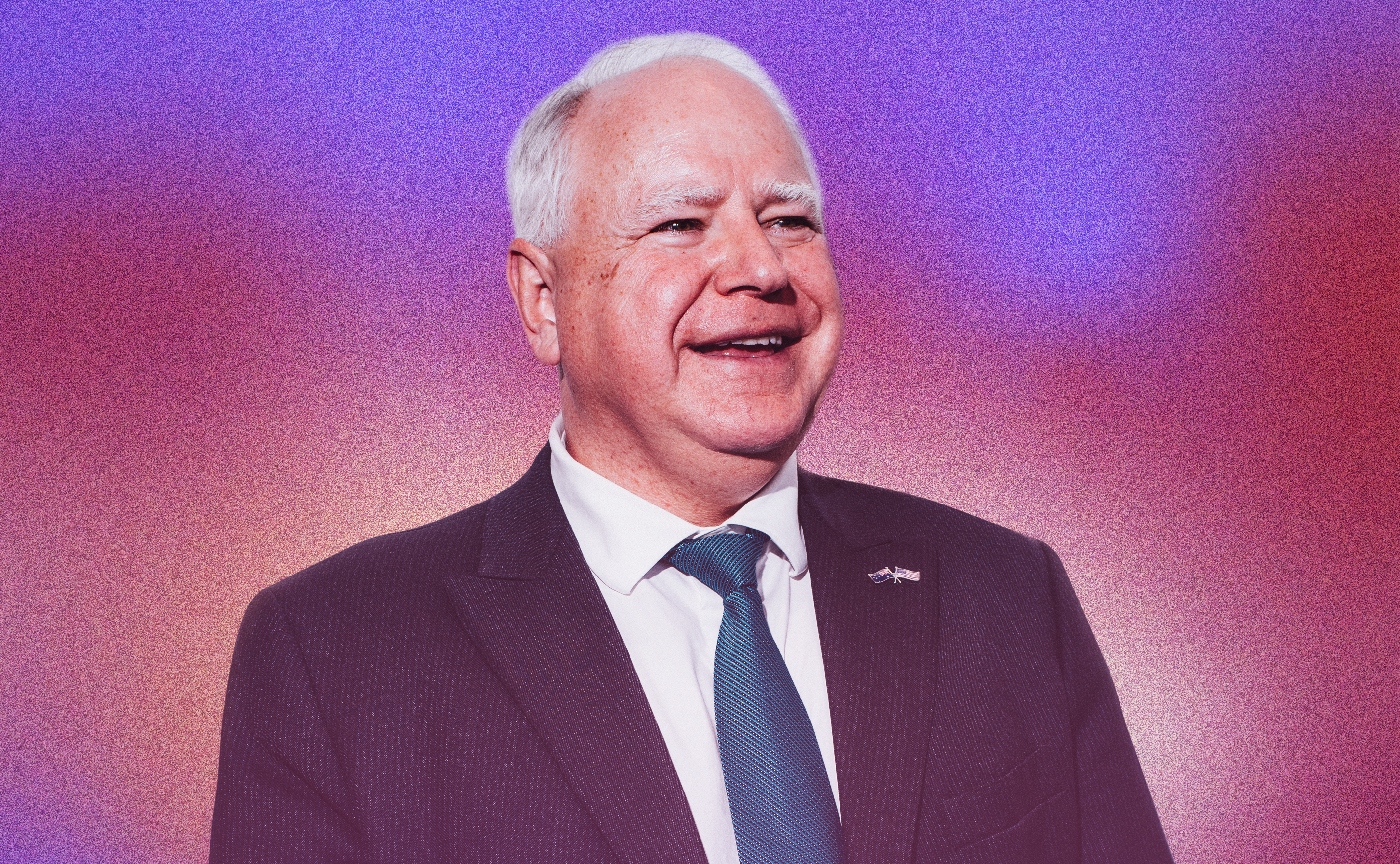After weeks of speculation, Vice President Kamala Harris announced Minnesota Gov. Tim Walz as her presidential running mate on Tuesday. And we can see why: Walz checks many voter-friendly boxes. He’s had experience in statewide office, Congress, and the military. Plus, a former high school social studies teacher, he connects with unions, particularly teachers’ unions, which have traditionally been affiliated almost exclusively with the Democratic Party. That all sounds lovely, but can he really help Harris win in November?
One former president isn't convinced.
In the lead-up to Harris’s long-awaited announcement, Trump suggested that VP picks don’t really matter because, at the end of the day, people vote for the who’s at the top of the ticket. “You're voting for the president,” Trump said during an interview at the National Association of Black Journalists conference. “You're voting for me."
Proving to be an agreeable running mate, Trump's VP pick, J.D. Vance, expressed a similar sentiment, even if it meant downplaying his own relevance to the election entirely. “People are going to vote primarily for Donald Trump or Kamala Harris,” Vance said in an interview on the “FULL SEND PODCAST” last week. “That’s the way these things go.”
But political scientists would argue otherwise amid what’s already shaping up to be a contentious race — here’s what they had to say.
Why VP nominees matter more this year
Political scientist Karen Hult acknowledged that there is some truth to Trump’s comments. Traditionally, she says vice-presidential nominees have “rarely made notable differences in election outcomes.” She attributes this partly to voters' lack of knowledge about the varying roles and responsibilities of vice presidents.
But she tells us this race “may well be an exception,” pointing to Trump’s age, 78, and the attempted assassination attempt on him as factors that “underscore the more general vulnerability of any president.” She adds that the attack “may highlight the need for a vice president who is prepared and has relevant experience to serve as president.”
After all, vice presidents are just a heartbeat away from the top job. Nine of the 49 vice presidents in U.S. history have unexpectedly risen to the presidency due to death or resignation. While that might not sound like a lot, that’s still nearly one in five. If your American history is rusty, here's a refresher: John Tyler was the first after taking over for President William Henry Harrison, who died just a month into his term. But Gerald Ford, who took office after President Nixon’s resignation, is the most recent example.
What vice president picks say about the presidential candidate
Choosing the wrong running mate can fundamentally cast doubt on a presidential candidate’s judgment, according to Christopher J. Devine, who co-authored the book, Do Running Mates Matter? The Influence of Vice Presidential Candidates in Presidential Elections.
“Our big conclusion is that running mates matter primarily in terms of what they tell you about the presidential candidate,” he tells us. “So picking someone who's credible is a good signal to voters that you're serious about governing and you’re not just trying to win an election.”
He notes that Harris’s decision to pick Walz over other leading contenders like Pennsylvania Gov. Josh Shapiro shows that she’s looking for an “all-round better candidate, not just someone who could deliver a certain state.” He added that Walz has a rare combination of serving as governor and in Congress, which he shares ironically with Trump’s former VP Mike Pence.
Devine says this decision was especially crucial for Harris, who has lived in President Biden’s “shadow” for the last four years. "This is an opportunity to tell voters who she is as a leader in her own right.”
However, our political scientists agree that Trump didn’t exercise similar judgment when picking a freshman senator over more experienced candidates. “J.D. Vance doesn’t appear to be very well-vetted,” says independent political analyst Rich Rubino. “I don't see a constituency that he necessarily picks up, but I think part of the reason he was chosen was because he’s very much in the mold of Donald Trump.”
How VP nominees can help sway votes
Seth David Radwell, author of American Schism: How the Two Enlightenments Hold the Secret to Healing Our Nation, tells Katie Couric Media that running mates serve a vital and impactful role on the campaign trail. For instance, he says Walz has already shown that he can take on Republicans after he went viral for calling Trump and Vance “just weird” during MSNBC’s Morning Joe. “Walz is using Trump's playbook of labeling in a derogative way, and I believe he can be a real bulldog against the former president,” he says.
On the other side, Vance is preparing to campaign for Trump by trailing Harris and Walz through seven key battleground states this week, including Wisconsin and Michigan. He’s expected to use these stops to attack Harris over key issues, like inflation and border security.
While it's impossible to know exactly how many votes a candidate could lose due to a VP pick, some experts believe we've seen it happen before: "The Palin selection hurt McCain's reputation with voters, and that cost him votes," says Devine. "Conversely, we can show that Joe Biden's readiness to be President, his apparent readiness to be present according to voters, actually made them more confident in Barack Obama's judgment and therefore gained Obama votes."
At the end of the day, even a small number of lost votes could impact the upcoming election’s outcome.
Radwell says, “We're in a very close election with a large base that’s subject to swing, so, in this case, the vice presidential choice matters a lot."









